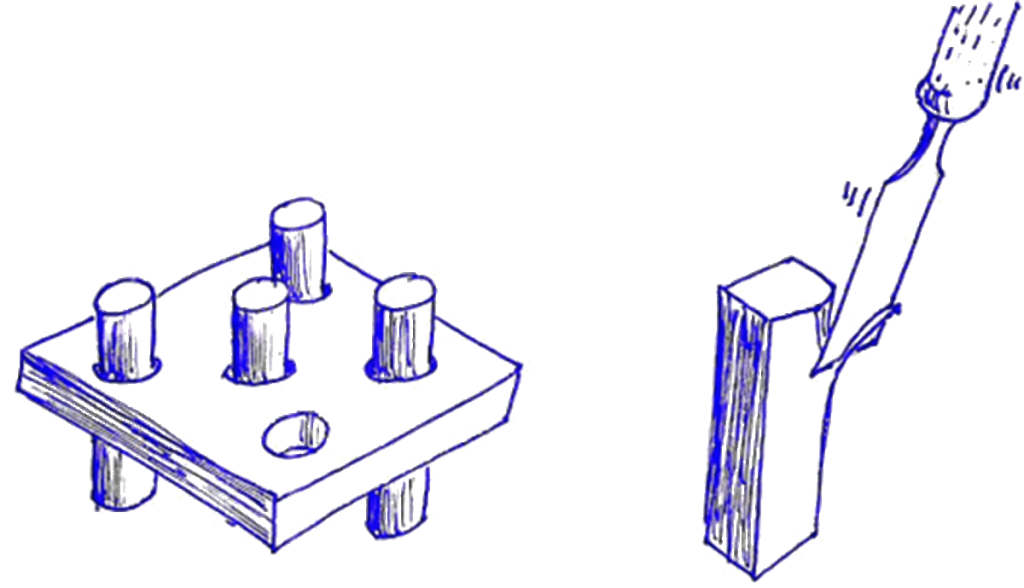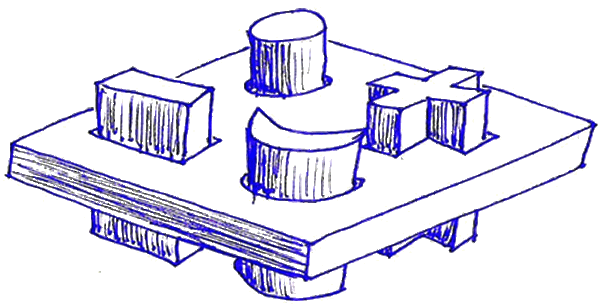Helen Pinnock
In this article, Helen talks about her experiences of working as a disabled education consultant within an aid sector built on the postcolonial effort to support and influence the development of countries receiving overseas development aid.
When working on education aid projects I am often the only disabled person in the room. This means I anxiously move between a disabled and non-disabled perspective. Why would I be anxious? I have a stronger voice than many disabled people within development and humanitarian programmes, because being white, British, and perceived as an expert gives me extra power. In this article I reflect on the often conflicting power dynamics.
Highlighting a disability perspective
I have ‘invisible disability’ – my impairments can be hidden, although it hurts my health to do so. To build a career and voice I’m often required to appear non-disabled. In each situation, I ask myself if openly speaking as a disabled person would help or hinder. Will people stop listening? Will my criticisms upset people so much that they won’t invite me back? I try to speak in a way that reflects a listener’s assumptions without erasing the reality of disabled people.
I do this because I believe a disabled perspective is essential for education projects funded through aid. Disabled people know the harm caused by education systems that promote dominant norms instead of supporting the diversity of learners. We have been damaged by the inflexible corners of those systems and experienced the waste of resources this causes.
How schools harm learners
I wanted to become a scientist like my father, but when I came to revise for exams, I didn’t know most of the textbook content. I realised too late that the problem was not my lack of ability but the seating in class. Science was taught in a laboratory-style classroom with tall stools at test benches. It was built in the 1940s when female anatomy was not important in science and the design did not consider children with musculoskeletal illness.



I spent most of my science lessons trying not to fall off the stool. If I had fallen, I would have been disciplined for not paying attention. So, I paid attention – to sitting upright. I remembered how this hurt, especially when menstruating, but I didn’t remember much of the curriculum.
Daily experience of such wasted learning time taught me how schools can harm learners and undermine learning outcomes, even when teachers are well-trained. My needs were often invisible because educators were not required to think about which factors could harm each child’s learning. Many nondisabled children in my school also did badly because of this.
What does this mean for policy and practice?
Such waste of potential and money makes it easy to see why United Nations Sustainable Development Goal 4 requires quality education to be inclusive and equitable, if countries are to build a full human resource base for their economies. The only way forward is for education systems to see and welcome the diversity of all learners, even when resources are limited. The Radical Inclusion Policy recently adopted by the government in Sierra Leone is a strong example of how to do this.1
Consequently, education aid programmes need to prioritise the lived reality of all learners – especially those who are marginalised. They need to seek insights from people who have been, and still are, invisible in education. Making such priorities fit with budgets, the political context, and all the other pressures should be at the centre of education projects. So what is stopping this focus on ‘lived reality’ from happening in education programmes?
Colonial legacies hinder education
Having been routinely harmed by my own education system, I started to question when aspects of that system were uncritically exported through aid. For example, aid programmes still expect foreign experts to produce training materials in English rather than investing in translation or supporting local experts to develop materials in the languages used by teachers.
It’s no surprise that programmes prioritising training and teaching in local languages have good outcomes. For example, the Girls’ Education 3 Project in Nigeria recently exceeded literacy and numeracy targets.2 But it does surprise me that implementers and donors ever support English-dominant projects when their learning outcomes have often been disappointing. (See Save the Children report for details.)3 Why do such programmes continue to be designed and funded?
Who is heard?
Maybe part of the problem is that to be heard in aid, and to have a say in design and funding, you need to reflect the donor’s perspective – and that favours being white, speaking English as a first language, and being economically middle-class. What if you are all those things, but don’t have experience of disability or other exclusion? How easy will it be for you to recognise, let alone resist, colonial dynamics in your own work or the programmes you’re involved with? Will you be able to challenge the exclusive nature of an education system if a very similar system was good for you?
If you do bring a disability perspective to the table, what education experience do you bring with it? Often, education programmes for disabled learners are designed by decision-makers who are not educators, while educators often design programmes that ignore disability and inclusion.
What is my role?
The well-known mantra of the disability rights movement – ‘Nothing about us without us’ – doesn’t mean ‘Be kind and let us take part’. It means, ‘You need us because we know what you’re doing won’t work, and we know why!’.
So, what should be the role of a white, British, disabled consultant within international education development programmes? We don’t need to speak about our disability in every situation. We mustn’t assume our experience of disability is universal. But we should provide frameworks to bring in the voices of disabled people in each context we work in. We can use our power to include voices who should be heard, and be ready to step back and provide support.
[1] https://bit.ly/eer24-8
[2] The final project review is here: https://bit.ly/eer24-9
[3] https://bit.ly/eer24-10
Helen has been an EENET consultant for ten years. Prior to this she worked on education with Save the Children. She can be contacted via the EENET office.
